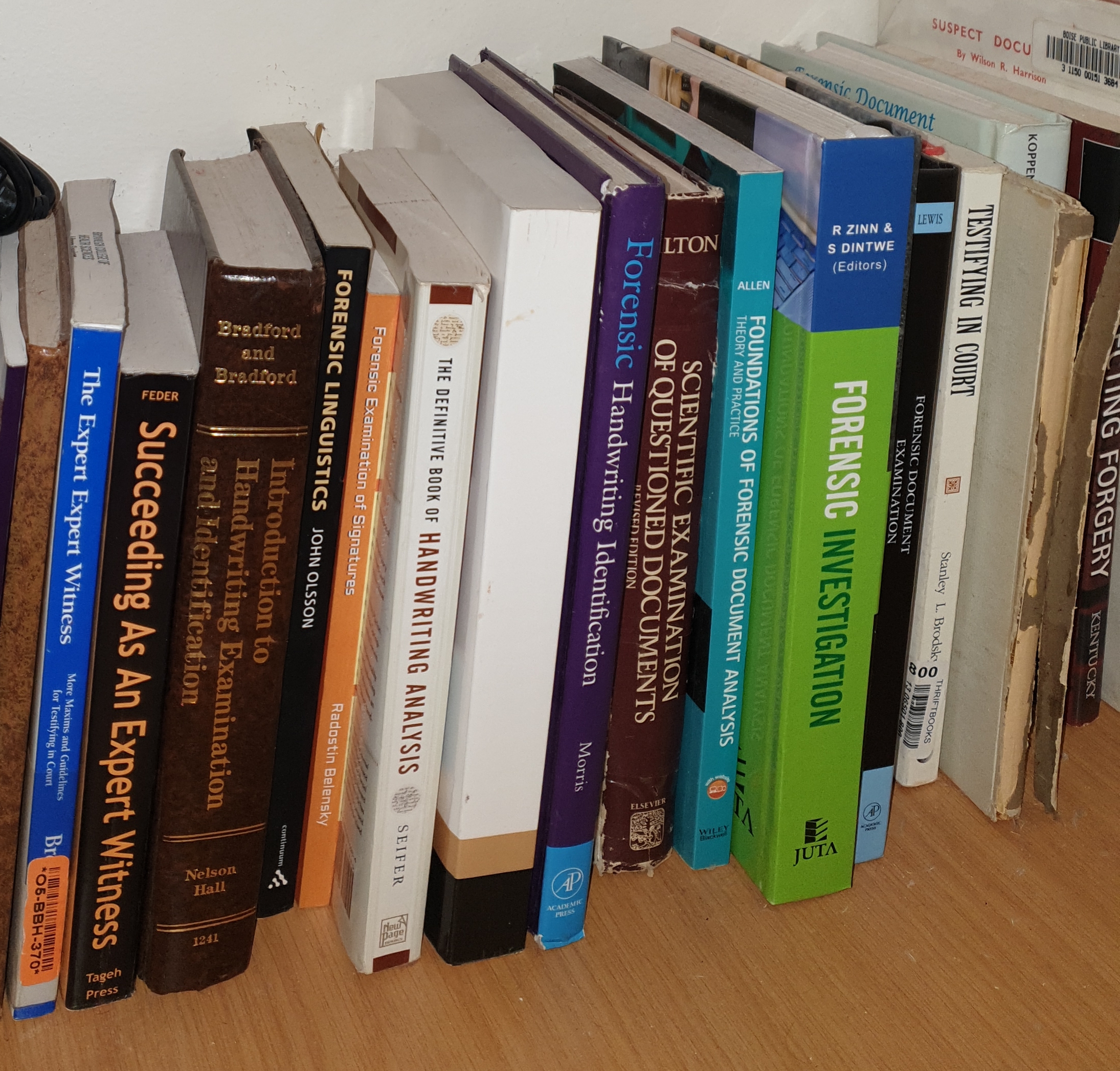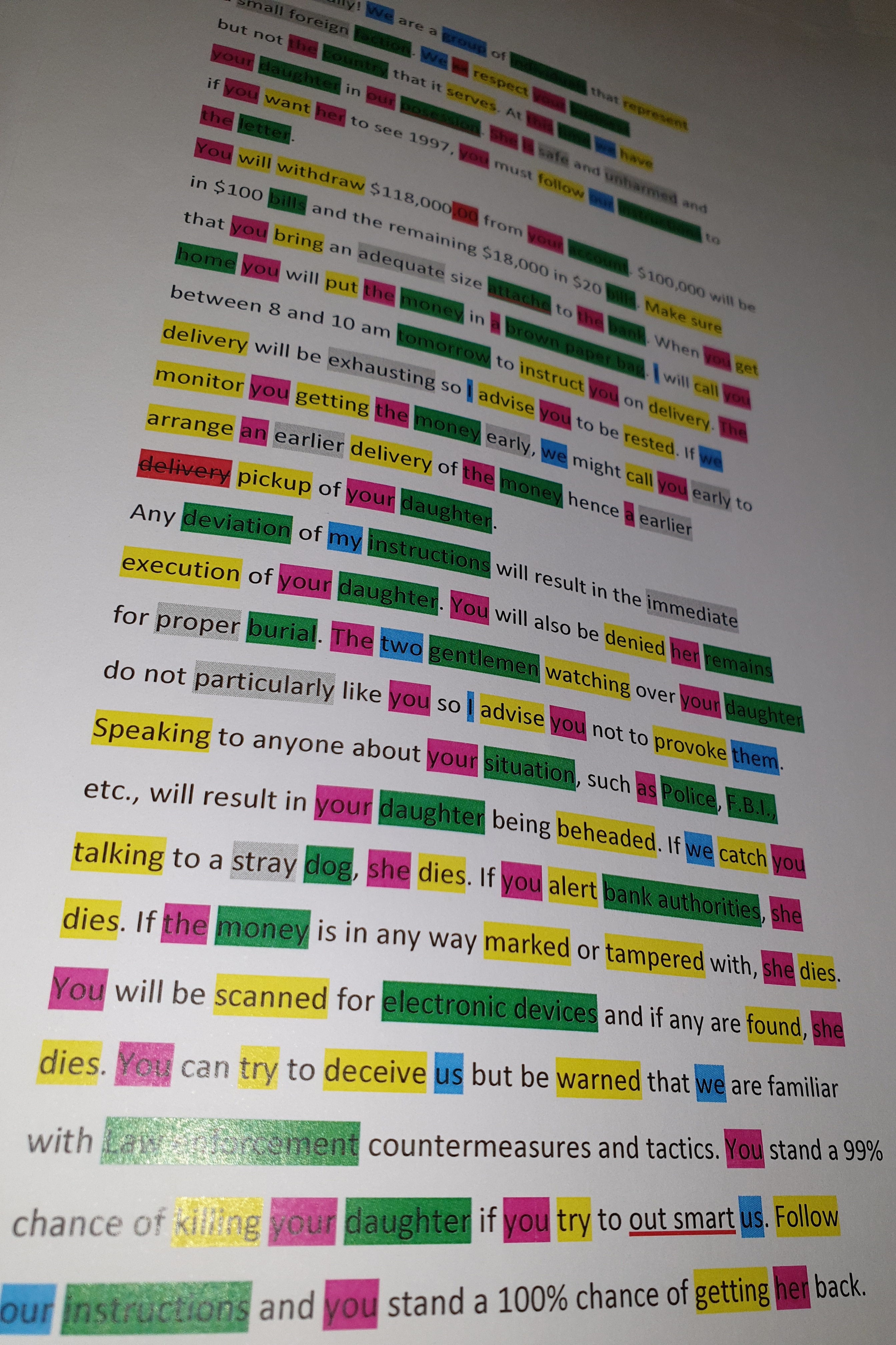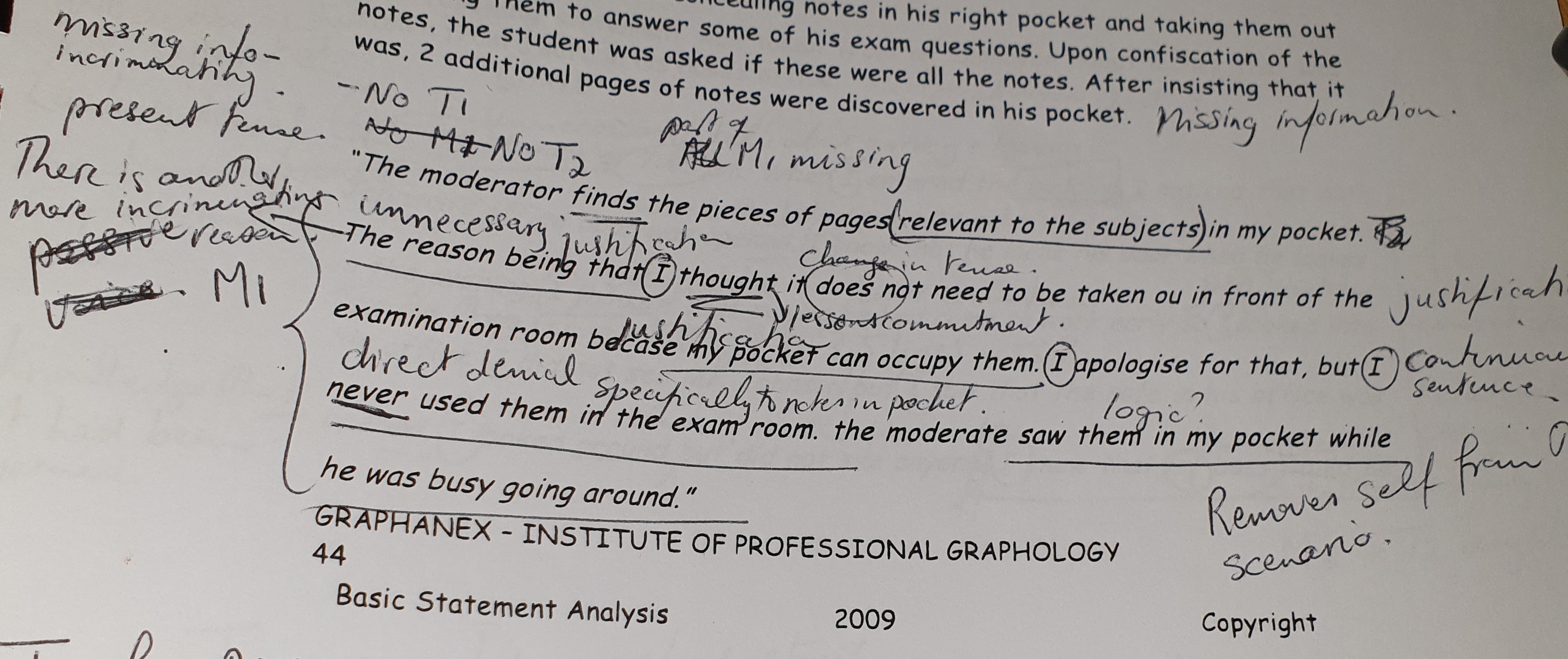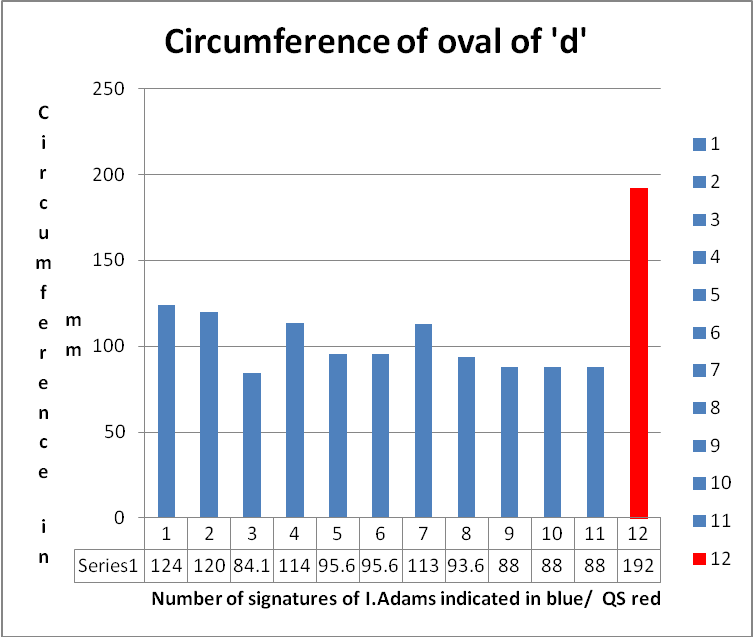
Module one covers features of handwriting. Many areas of forensic document analysis include determining the authorship of a document, historical dating, typewriting analysis, analysing documents to identify criminal intent, paper and ink analysis to determine date and types of paper, ink, water-marks, copy machines, printer cartridges etc., determining forgeries, i.e. alterations, erasures and other changes, forensic stylistics where the examiner assess linguistic style, grammar and word choices to determine authorship, and finally, computer crime investigation. Please note that this module focuses on the analysis of handwriting and printed documents only.

Advanced Statement Analysis builds on the skills acquired in Basic Statement Analysis, provides further technical skills and explores in greater depth the behaviour of lying as well as looking at nonverbal communication
- Lecturer: Dr Cecelia Rosa

Statement analysis detects deception and obtains information from statements made in a variety of contexts.It is based on the premise that truthful statements exhibit certain consistent patterns and norms.
The formal science of Statement Analysis began to take shape shortly after World War II, as structured techniques were developed to examine language usage.

The module in Principles, Techniques and Methodologies covers forensic handwriting techniques, and methods practiced to establish authenticity of handwriting on documents, but focuses on handwriting and includes line quality, education, neurological and mental disorders, substance abuse and other external factors affecting the handwriting and provides an introduction to basic handwriting comparison techniques, techniques for comparison of disputed writing with genuine writing, types of handwriting forgery.
- Teacher: Dr Cecelia Rosa

Module two focuses on the preparation of documents for expert testimony. This module provides students with practical application of report writing, presentations and testimony
- Teacher: Dr Cecelia Rosa
